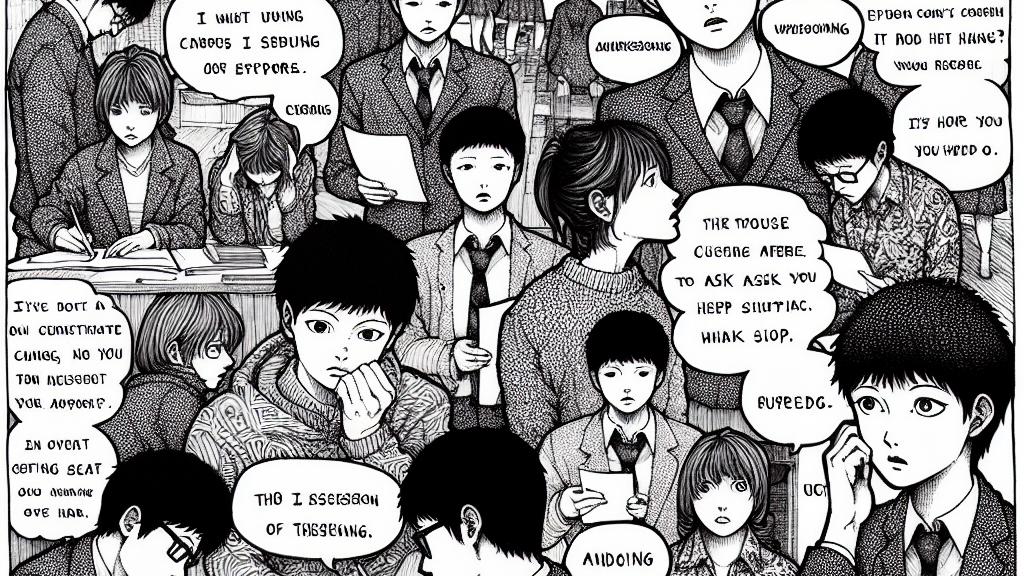Understanding Communication Gaps in Students
Overview
- Students often hesitate to specify their needs when encountering academic challenges.
- This avoidance is frequently tied to fears of judgment and the desire to maintain a favorable self-image.
- Cultivating effective communication skills is essential for academic achievement and future career success.

Exploring the Underlying Causes of Communication Gaps
In educational environments throughout Japan, a noteworthy communication barrier has surfaced among students. For example, many students might approach their professors with vague statements like, 'I couldn't turn in my report on time,' leaving out clear requests for help or guidance. This behavior often stems from a fear of being perceived as overly demanding or needy. Consider a student who fears that asking for an extension could lead to negative judgment. This constant inner battle can prevent them from seeking critical assistance, turning what could be a collaborative effort into a solitary struggle. Hence, by avoiding specific requests, students inadvertently miss out on opportunities for valuable support that could enhance their understanding and tackle their academic hurdles.
Implications for Academic Engagement and Success
The tendency to communicate vaguely can have serious implications for students’ academic journeys. For instance, picture a scenario where a student, lacking the confidence to articulate their needs, says, 'I couldn't attend the class because of my internship,' without following up with a request for help on what they missed. In such cases, instructors are left guessing how to assist, which can lead to frustration for both parties. On the other hand, when students communicate clearly, such as saying, 'I missed last week’s lecture on marketing strategies; could we review the key concepts together?' it transforms the interaction into a collaborative exchange. This straightforward communication not only builds rapport but also encourages teachers to offer tailored support that aligns with student needs, ultimately fostering a richer learning environment.
Empowering Students to Improve Their Communication Skills
To effectively close these communication gaps, students must embrace the challenge of expressing their needs with confidence and clarity. Initially, they should practice articulating specific requests, rather than vague complaints. For instance, instead of saying they are overwhelmed, a student might express, 'I'm struggling with the assignment due next week—could you recommend some helpful resources or tips?' Moreover, educational institutions play a critical role in this transformation by creating supportive environments that prioritize open communication. Engaging workshops focused on developing interpersonal skills and confidence can empower students to take initiative in their own learning. By mastering the art of articulate expression, students don’t just enhance their academic performance; they also prepare themselves for professional environments where effective communication is a fundamental skill for success.

Loading...